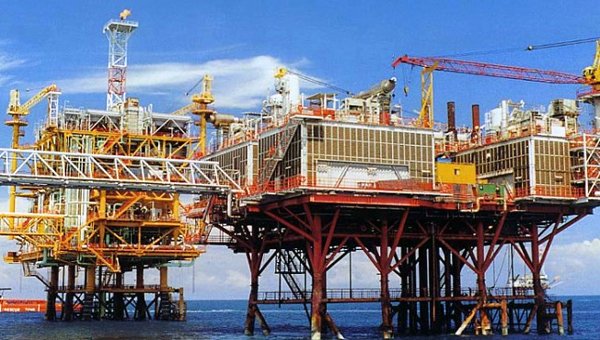
The Ministry of Industry and Trade (MOIT) reported great success in crude oil exports for 2014, estimating an export volume of 7,549 tons and export turnover of $6.802 billion.
MOF has reported a 12 percent increase over the estimated collection for the state budget, and a 14-15 percent higher collection rate from oil exports alone.
However, if the oil price keeps falling, according to Do Hoang Anh Tuan, MOF Deputy Minister, the State will lose VND1 trillion in 2015 budget revenue for every one dollar in the drop in oil prices.
If the oil price hovers around $80 per barrel, Vietnam would lose VND20 trillion in taxes, including 10 percent crude oil export tax, natural resource tax, corporate income tax and other kinds of fees and charges.

The oil price plunge has reminded people of the 2009 oil crisis. The oil price has fallen by 34 percent from its peak in June and July 2014.
MOF raised the tax to offset the oil export revenue decrease. On December 6, 2014, MOF quietly raised the import tariff on petroleum, while it did not release any official statement about the tariff increase.
The tax on petrol was raised from 9 percent to 27 percent, while diesel is now taxed 23 percent, and mazut 24 percent. Meanwhile, with the tax increase of 10 percent, kerosene is now taxed 26 percent.
With the tax increase, MOF plans to collect over VND1,000 from every liter of petroleum product sold.
The move by MOF to raise the import tariff was a big surprise to both petroleum distributors and consumers, because just two months ago the ministry stated that it would not lift the import tariff in 2014.
Dr. Le Dang Doanh, former head of the Central Institute for Economics Management (CIEM), now is a renowned economist, commented that MOF was just applying the measure to increase state budget revenue, and it does not have a long-term vision when analyzing the situation.
Doanh said in general Vietnam will have major benefits from the oil price decrease, because it can import petroleum products at lower prices.
This will benefit enterprises because they can enjoy lower input material prices, and therefore, will lead to lower goods and service prices.
In 2013, MOF predicted a serious loss of revenue because of policies on business tax remission. However, in fact, the real state budget revenue was VND63 trillion higher than the estimate.
US$1 = VND21,00